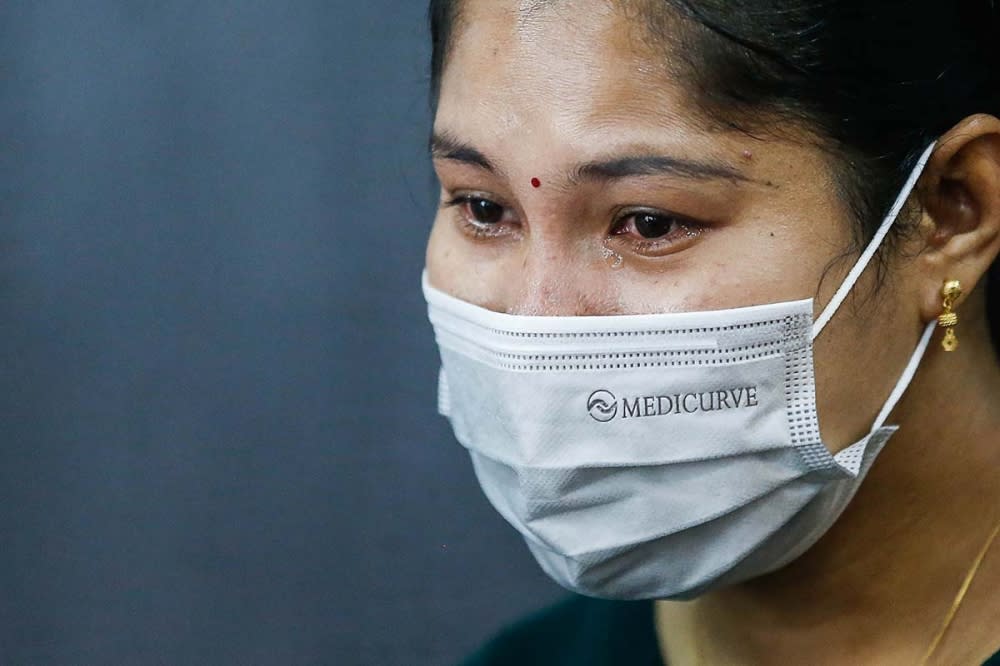Kids' unilateral conversion to Islam lawful, High Court hears in Hindu mum Loh Siew Hong judicial review bid to challenge conversion

KUALA LUMPUR, March 21 — Perlis state religious authorities exercised their power lawfully when it allowed Hindu mum Loh Siew Hong's three children's unilateral conversion to Islam without her consent, the High Court heard today.
In today's virtual hearing, Perlis state legal advisor Mohd Radhi bin Abas said unilateral conversion of minors to Islam is allowed in the state pursuant to state law under Section 117(b) of the Administration of the Religion of Islam Enactment 2006.
He said the state had later introduced amendments by virtue of Section 7 of the Administration of the Religion of Islam (Amendment) Enactment 2016 to replace the word 'ibu dan bapa' to 'ibu atau bapa' to denote the clear intention of the legislature to allow conversion with either consent of parents.
Mohd Radhi who is representing the Registrar of Mualaf as well said the latter had thus exercised their powers legally in registering and issuing the certificate of conversion upon consent by the children's father.
He said the respondents were also relying on the interpretation of Section 160B of the Federal Constitution which states that where the Constitution has been translated into the national language, the Yang di-Pertuan Agong may prescribe the text as authoritative.
“Article 12(4) of the Constitution (on underage religious conversion) in Bahasa Malaysia provides 'parent' which denotes a singular parent,” he said.
However, in the 2018 decision, the Federal Court unanimously confirmed that the English text of the Federal Constitution is authoritative since it has not been shown that the Yang di-Pertuan Agong has prescribed the Malay translation to be authoritative.
High Court judge Datuk Wan Ahmad Farid Wan Salleh then asked Mohd Radhi whether he intended the court to depart from the Federal Court’s 2018 decision in M. Indira Gandhi’s case, further noting it was 'quite a tall order' to ask for a reversal of the decision by the country's apex court.
In response, Mohd Radhi urged the court to rely on the Federal Court's 2007 judgment in R. Subashini's case that any one parent had the right to convert a child since the court then was not directed to the evidence of necessary prescription of the national language translation in Indira Gandhi's case.
Lawyer Haniff Khatri Abdulla who appeared for the Religious and Malay Customs Council of Perlis (MAIP), said he was not requesting the court to depart from Indira's precedent but is accorded the liberty to choose which to follow based on the factual matrix of the case.
This he said arose from the conflicting decision between the cases of Subashini and Indira Gandhi heard by the Federal Court.
Appearing for Loh, lawyer A. Srimurugan said that the law is binding of the judicial pronouncement made by the apex court in Indira Gandhi’s case, citing judicial precedence or the doctrine of stare decisis.
He said the named respondents never disputed the fact on which Loh's three children were converted unilaterally, further stating the only issue before the court is the legal status of said conversions.
“What is the law as it stands today? It clearly says that unilateral conversion is null and void,” he said.
Stare decisis, meaning “to stand by things decided” in Latin is a judicial doctrine under which a court follows the principles, rules, or standards of its prior decisions or decisions of higher tribunals when deciding a subsequent case with arguably similar facts.
In his rebuttal, Srimurugan said the veracity of the Bahasa Malaysia version as prescribed by the Yang di-Pertuan Agong at a public function which was previously reported in the media was inconclusive.
Based on the local daily The Star's September 30, 2003, report, the then Yang di-Pertuan Agong launched the Malay translation of the Federal Constitution on September 29, 2003.
“The respondent's strongest evidence is a newspaper cutting. It is not an official source (from the government).
“There is also no letters from the Attorney-General Chambers confirming or rebutting the said official prescription,” he said.
After hearing submissions from parties, High Court judge Datuk Wan Ahmad Farid Wan Salleh later fixed May 11 for the decision.
In December 2019, Loh obtained interim custody of her children pending her divorce, but her court case was delayed when the country went into Covid-19 lockdown in March 2020; she finally obtained an order granting her full and sole custody in March 2021.
On February 21 last year, Loh was finally reunited with her children after the High Court granted her a writ of habeas corpus for an immediate release of her three children from alleged unlawful detention.
In June 2022, the High Court also quashed MAIP’s legal bid to intervene in a divorce petition between Loh and her ex-husband since it failed to show it was an interested party to be involved in the lives of the children when it applied for a variation on the terms of the sole custody order.
However, the June 2022 decision was set aside at the Court of Appeal in a three-judge panel’s unanimous decision in February this year, that would allow MAIP to file anew a bid to intervene for the purpose of varying a custody order granted to Loh.



